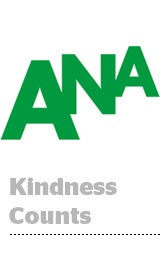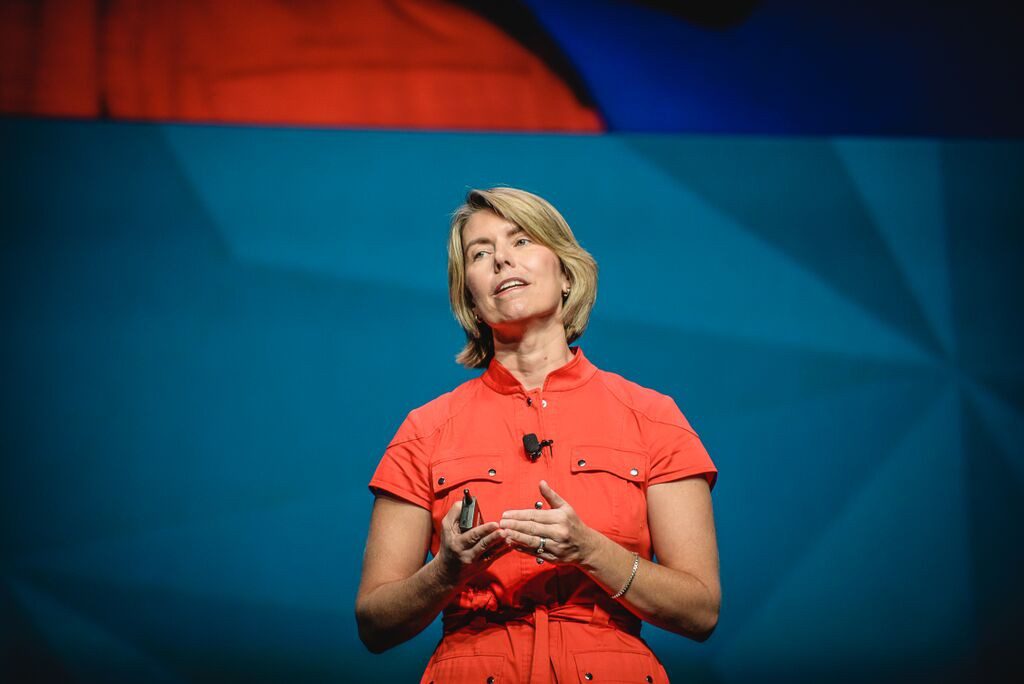 Marketers are known for a near obsession with data – metrics, iteration and ROI – but a string of CMOs at this year’s ANA Masters of Marketing conference avoided the firm ground of data and measurement in favor risk-taking and experiential concerns.
Marketers are known for a near obsession with data – metrics, iteration and ROI – but a string of CMOs at this year’s ANA Masters of Marketing conference avoided the firm ground of data and measurement in favor risk-taking and experiential concerns.
“Advertising isn’t dead, but it’s craving courage,” said Arby’s CMO Robert Lynch, pointing to the fast-food chain’s self-deprecating embrace of The Daily Show, which made Arby’s the butt of a long-running joke.
Airbnb CMO Jonathan Mildenhall highlighted his company’s million-dollar giveaway – in $10 increments to its users – meant to stimulate a campaign about “paying it forward.”
In both instances, marketers are relinquishing strict control over their message in order to (hopefully) associate their brand with positivity – be it a quick laugh or paying for a stranger’s meal.
Metrics, tracking and iteration are tough to fit into marketing concepts like these, where the benefit often comes from unpredictable second-level effects. For example, Airbnb’s campaign wasn’t pegged to any specific metric or ROI, but according to Mildenhall, it led to press coverage “that more than accounted for if we had spent that money on PR for earned media.”
The reputational boost from these types of marketing moves can be inherently hard to quantify but are valuable from a brand perspective. Last year, for example, an Arby’s TV ad featured only a Pepsi as part of a tongue-in-cheek apology for not placing its beverage partner’s logo in two TV spots, as it was contractually obligated to do. Arby’s biggest competitors spend up to 10 times more on marketing, so devoting a TV spot to another brand isn’t a minor concession.
Lynch described the strategy as “being authentic to a fault.” He might not be able to quantify how that spot impacted viewers (unless Pepsi sales went up), but he said it’s a part of the risk a marketer has to be willing to take if he or she believes there’s an opportunity to reinforce the brand’s core beliefs – which in Arby’s case includes a self-deprecating sense of humor.
Advertising can be competitive to the point that positivity is squeezed out: a brutal, knockdown battle for mindshare and media real estate. That rat-race mentality comes with drawbacks.
For the ridesharing app Lyft, company CMO Kira Wampler said it’s crucial “not to think about crushing competitors or crushing car companies. Think about crushing congestion.”
Wampler said that avoiding the gladiatorial brand vs. competitor tensions that suffuse most advertising is a risk – like a political campaign that doesn’t criticize opponents – but can pay off if the experience is strong. For instance, she claimed that competing head-to-head with Uber has less long-term value than associating Lyft with a “culture of compassion” that will make ridesharing newcomers feel comfortable hopping in a stranger’s car.
Airbnb is in a similar situation. It’s easy to see the startup as stepping into the ring with hotel companies, but why should Airbnb compete in the paid media world against colossal brands when what the company needs is to develop trust around the idea of staying in a stranger’s home (or vice versa)? The answer is: It shouldn’t.
Mildenhall said that when big advertisers dropped out of sponsoring Caitlyn Jenner’s Arthur Ashe Courage Award, Airbnb saw an opportunity to step into a marketing vacuum that was risky, but deeply emotional. Local or regional campaigns targeting established hotel chains are easy to iterate and measure for direct impact, in terms of inventory availability and market share, but Airbnb sees more value in being associated with kindness toward strangers.
Starbucks’ generosity toward its baristas, in the form of pay raises, dental insurance and tuition assistance, isn’t the CMO’s jurisdiction, but Wampler said, “it’s highly relevant and can’t be siloed” from the company’s marketing position. She cited better treatment of customers and friendlier in-store experience as indirect ways those costs contribute to the brand image.
Pepsi President Bradley Jakeman set off a minor firestorm when he asked Thursday, “Can we stop using the word ‘agencies’? An agent is someone who disintermediates, and I don’t need to be disintermediated from my customer.” He even suggested moving away from the word “advertising,” as it’s “based on this model of polluting the content the audience actually wants.”
Those comments were widely interpreted as kicking agencies while they’re down, but Jakeman’s meaning is not so different from other leaders who spoke about shifting toward experiential content and away from the paid media model that agencies are familiar with.
Marketers who are driven by established media metrics – be it TV’s GRP or the CTRs and conversions that have defined digital – will miss out on future growth due to “a fear of losing what they have,” Mildenhall said.
For an advertising ecosystem that is obsessed with creating and hitting ROI metrics, it may be an uncomfortable truth, Mildenhall said. But consumers don’t want to just see a brand on their favorite site; “they want to see a brand stand for something.”














